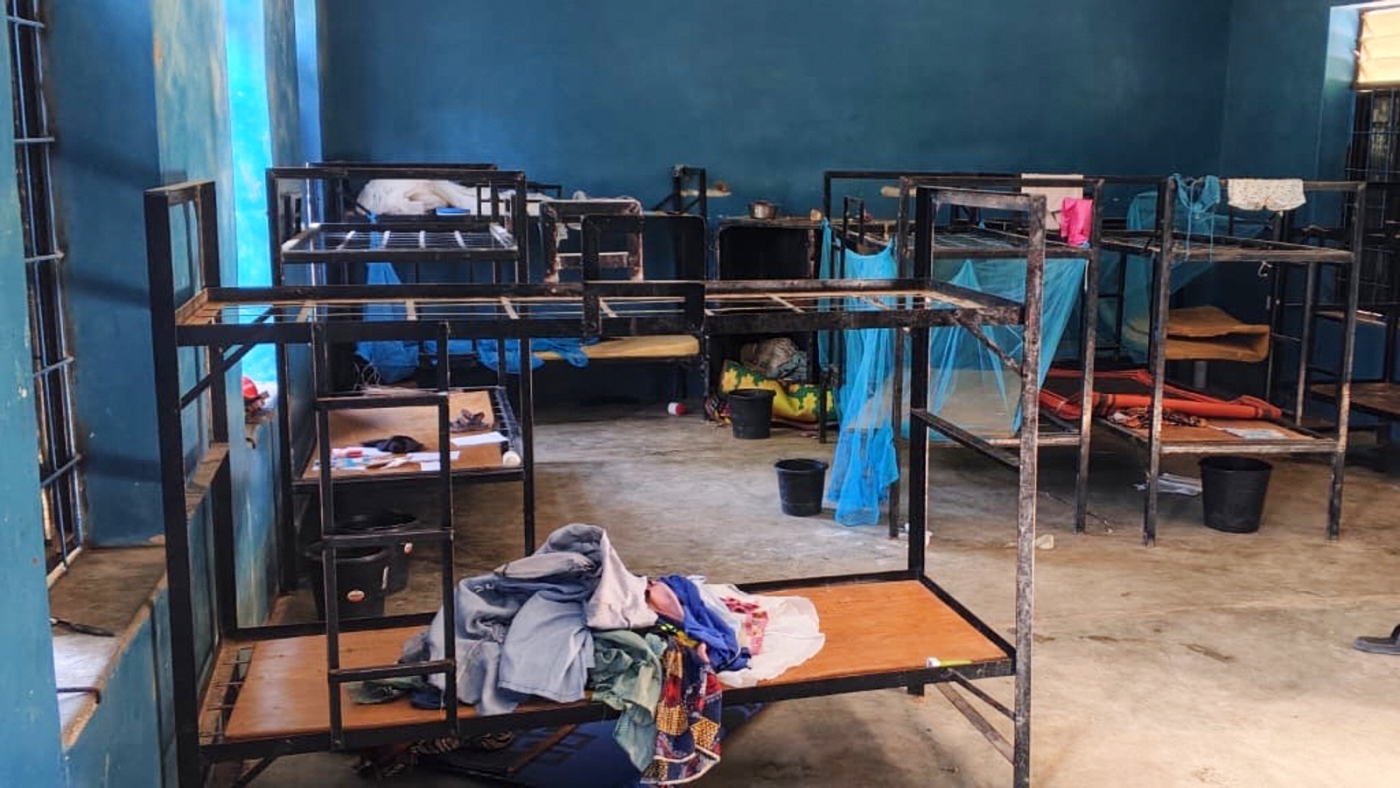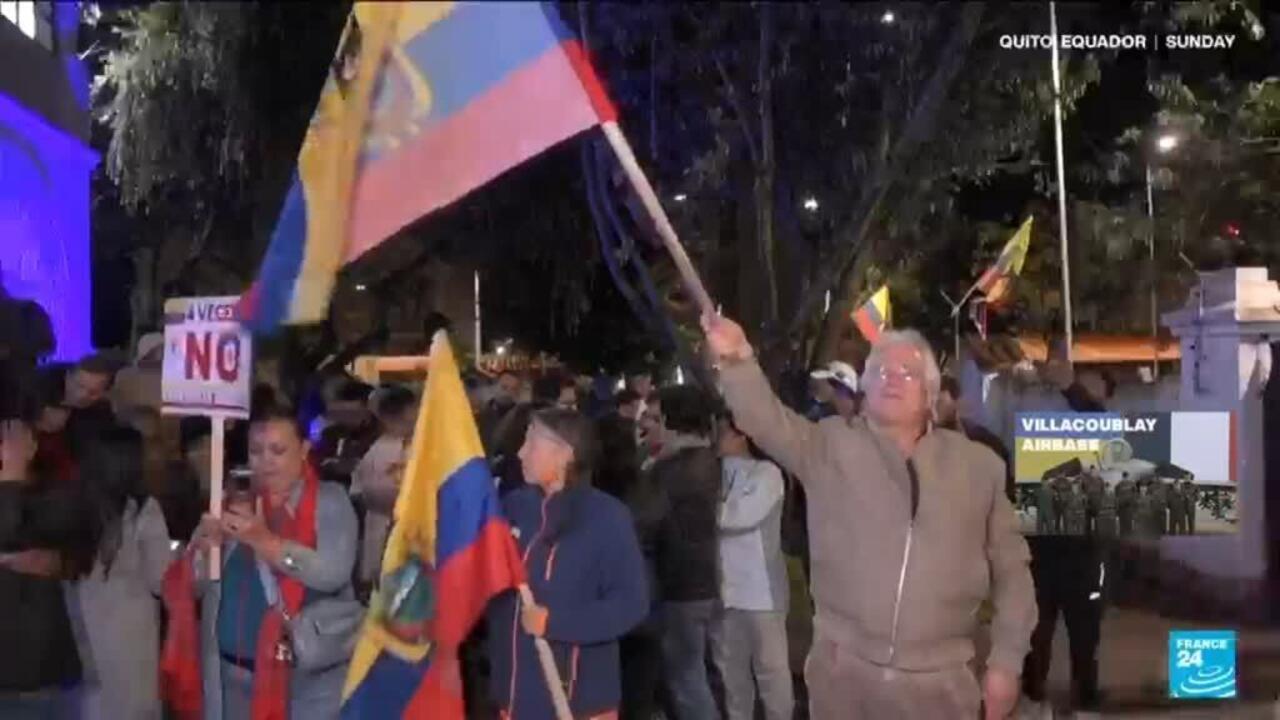
Sudanese refugees from Zamzam camp outside of El Fasher, in Darfur, receive food. Lynsey Addario/Getty Images Europe hide caption
toggle caption
Lynsey Addario/Getty Images Europe
JOHANNESBURG, South Africa — A paramilitary group accused of genocide says it has seized the last Sudanese army stronghold in the Darfur region. The move raises fears of ethnic cleansing and concerns the war-torn country could ultimately split in two.
The Rapid Support Forces (RSF) said Sunday they had overrun the army's base in the city of El Fasher, which has been under siege for more than year. The government – which has been fighting a civil war against the militia since 2023 -- has yet to confirm this.
The U.S., UN experts, and the Sudanese army all argue that the RSF – which grew out of the notorious Janjaweed militia that fought in Darfur in the early 2000s – and allied ethnic-Arab militias have been committing genocide. They say the targets are African ethnic groups in Darfur.
'Evidence of potential mass atrocities.'
Videos circulating online that could not be independently verified by NPR, appeared to show heavily-armed RSF fighters celebrating taking the city; in vehicles chasing people fleeing; and shouting racials slurs at detainees.
The United Nations' migration agency said 2,500 to 3,000 people had fled El Fasher since Sunday. The Humanitarian Research Lab at Yale University confirmed satellite imagery showing significant damage at the city's airport and army headquarters.
The Yale lab said it saw signs the RSF had taken prisoners and it was monitoring for "evidence of potential mass atrocities."
The United Nations humanitarian chief Tom Fletcher said in a statement that "with fighters pushing further into the city and escape routes cut off, hundreds of thousands of civilians are trapped and terrified – shelled, starving, and without access to food, healthcare, or safety."
President Trump's Africa envoy Massad Boulos posted a statement saying "humanitarian corridors must be opened immediately… the world is watching El Fasher and the RSF's actions with deep concern."
But Shayna Lewis, Sudan Specialist at US-based non-profit Avaaz, said "the international community has thus far failed in its responsibility to protect civilians, standing by whilst the RSF perpetrates a succession of ethnically-motivated massacres of civilians across Sudan."
"Thousands of civilians are at risk of atrocity crimes in and around El Fasher," she added.
While rights groups have accused both sides in the conflict of war crimes, including extrajudicial killings and the blocking of humanitarian aid, they have blamed the vast majority of atrocities on the RSF led by Mohamed Hamdan Dagalo, known as Hemeti.
The Sudan Doctor's Network said in a statement that dozens of people had been killed in a "horrific massacre…in a crime of ethnic cleansing" since the RSF took control of the El Fasher military base, a claim NPR could not independently verify.
But the militia group has committed atrocities in the region this year already. In April the RSF attacked the massive ZamZam displacement camp in North Darfur, which was home to about half a million people, killing hundreds.
Doctors Without Borders said Monday they were treating people who had fled El Fasher at one of their nearby health posts.
"During the night of 26 to 27 October, around 1,000 people from El Fasher arrived by truck… So far today, about 300 people were treated at the health post and 130 sent to the emergency room of the hospital, including 15 requiring lifesaving surgery."
The majority of the children under five who they saw from the city were malnourished, the aid group said.
International involvement complicates conflict
Two and a half years of conflict in Sudan have seen tens of thousands killed and 14 million displaced in what the UN says is the world's worst humanitarian crisis.
The war over which side gets to run the resource-rich nation that sits at the vital crossroads between North Africa, the Sahel, the Horn of Africa and the Red Sea has not been happening in a vacuum.
There are multiple international players involved.
On Monday, UN head Antonio Gueterres lamented "external interference" which he said was undermining the possibility of a ceasefire.
Saudi Arabia, Egypt and Iran are all supporting the Sudanese army, while the United Arab Emirates is accused of backing the RSF — something the UAE denies.
The army, led by de-facto Sudanese leader Abdel Fattah al-Burhan, claimed a major victory earlier this year when it retook the capital Khartoum, marking a key turning point in the war.
But the RSF regrouped in Darfur. It has besieged some 250,000 residents of El Fasher for 18 months, targeting civilians with drones and strikes, and the blockade has led to starvation and famine.
With El Fasher now apparently in the hands of the RSF, the whole of Darfur is under the paramilitary's control. Experts worry the region could split the country in two, as happened during the last war in Darfur and the creation of South Sudan.
The RSF announced the establishment of a rival government earlier this year, though it has not been recognised.

 1 month ago
23
1 month ago
23










 English (US) ·
English (US) ·